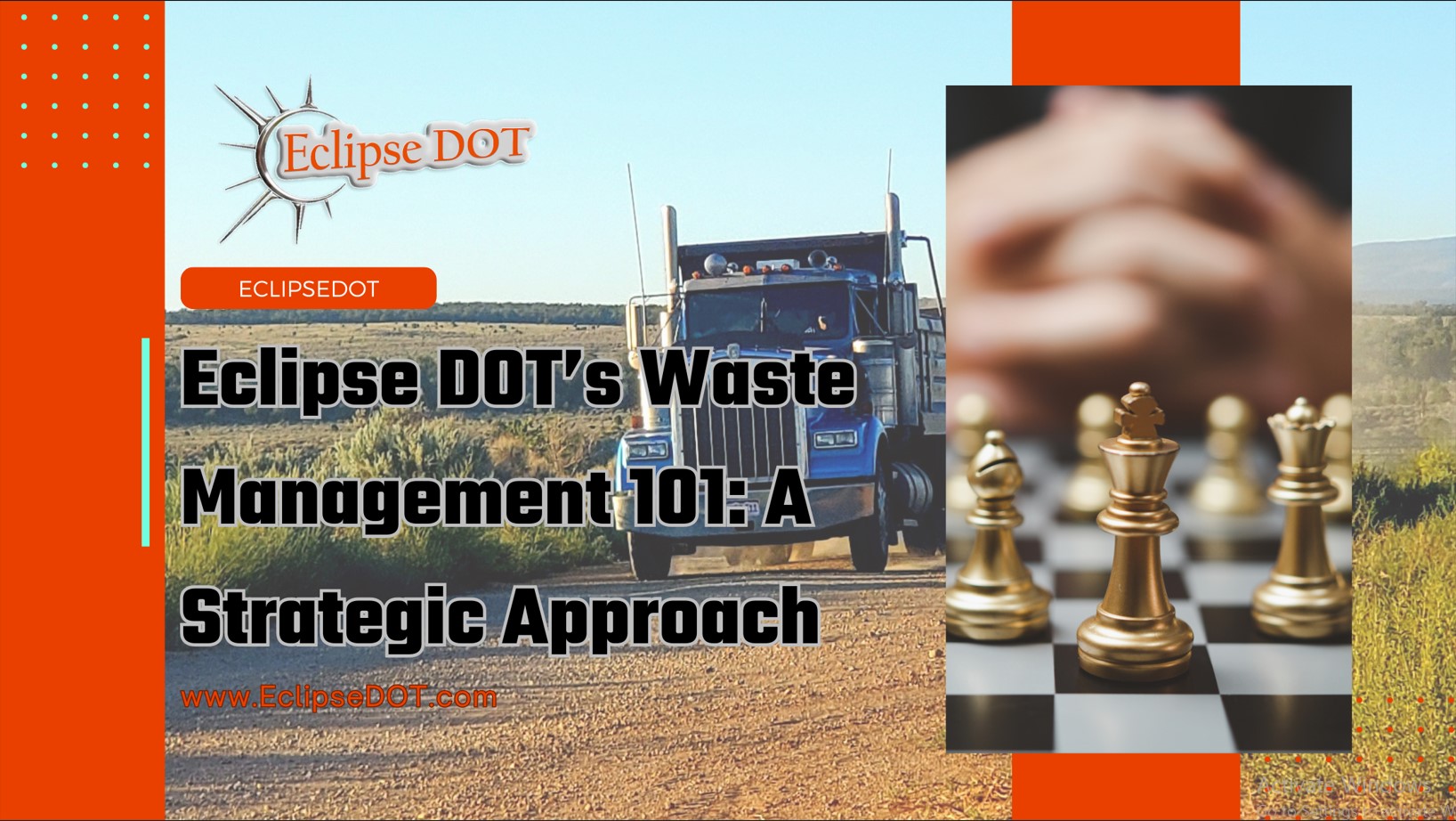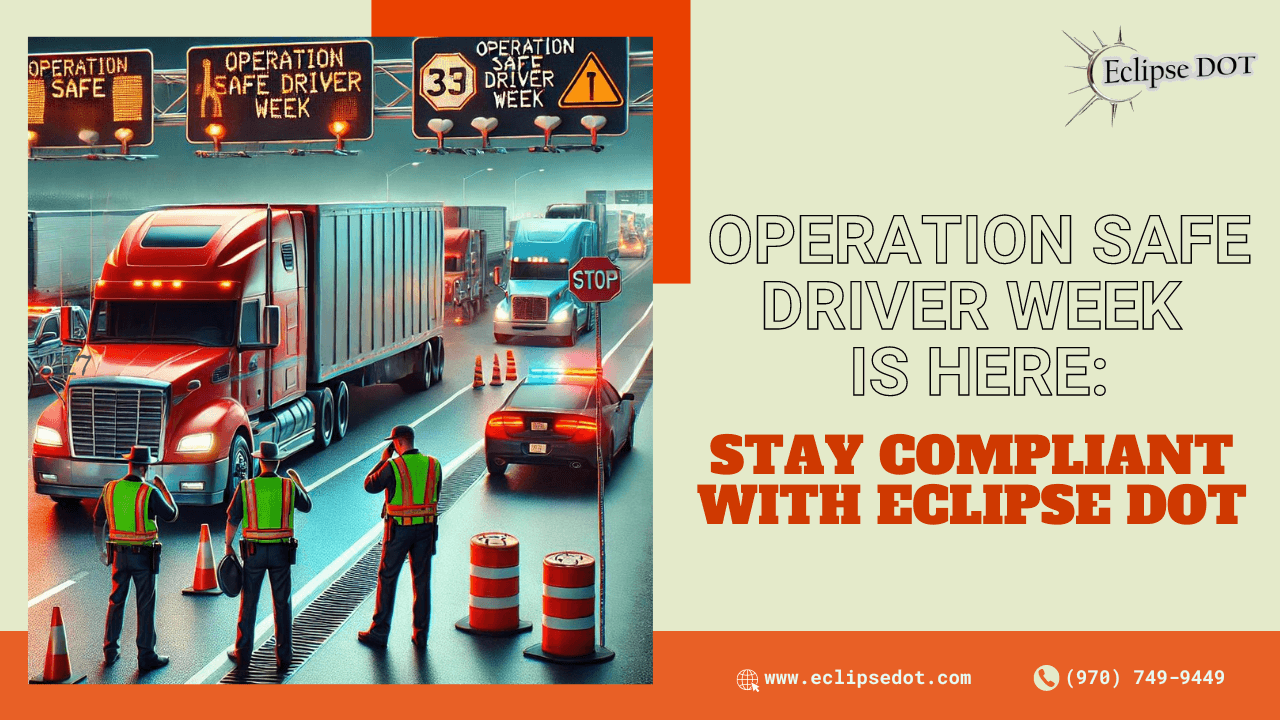Eclipse DOT’s Waste Management 101: A Strategic Approach
Examples of Waste Items That Have Become Harder and Harder to Throw Out for Home and Business Owners
We have been dealing with the waste industry for over 6 years, and one of the things that we are passionate about is finding out people’s needs and helping them make an economical decision on dealing with their waste struggles.
We would also like to help put your worries at ease. Any consumer product that we purchase, inherit, or have is never considered waste until we decide we don’t want or need it any more and would like to dispose of it.
Depending on the hazardous characteristics of the products, there are varying requirements for disposal of these items that make it harder and harder for home owners to just throw them away in the household garbage.
Latex Paints: A Palette of Eco-Friendly Options
Latex paints, often lingering in our homes after a DIY project, can find purpose beyond their original use. Here’s a deeper look at how to responsibly manage them:
- Intended Purpose: Using latex paint for its designated purpose is the first and best option. Whether it’s beautifying your walls or adding a splash of color to furniture, getting the most out of the paint ensures its full utility.
- Drying Out for Solid Waste: Got leftover paint with no immediate use? Open those lids and let it dry out. When the paint solidifies, it becomes compliant with the solid waste bureau’s requirements, making it eligible for acceptance at Title D landfills. This not only disposes of the paint responsibly but also aligns with environmental guidelines.
- Upcycling with Scrap Materials: Consider this creative and environmentally friendly approach: if you know of any scrap wood, cardboard, or metal heading to the local dump in substantial quantities, repurpose your excess latex paint. By painting these materials, you give them a new lease on life, serving their original purpose. It’s a win-win—waste reduction and resource optimization in one stroke.
- HHW Collection Events: Keeping an eye on Household Hazardous Waste (HHW) collection events is another proactive step. These events cater to items like latex or oil-based paints, even those without labels or with uncertain identities. If you’re interested in attending one of these events, let us know. We’ll provide you with detailed information on locations and dates, ensuring your paint disposal aligns with responsible waste management practices.
Latex paints need not be a source of environmental concern. With a palette of options—from intended use to creative upcycling and participation in HHW events—Eclipse DOT is here to guide you towards environmentally conscious choices for managing your leftover latex paints.
Aerosol Cans: Sustainably Navigating the Mist
Aerosol cans, prevalent in our households, demand careful consideration for disposal. Let’s explore a comprehensive guide to responsibly managing these cans throughout their lifecycle:
- Original Purpose: Spray Till Empty: The journey begins with using aerosol cans for their intended purpose. Spray until empty, ensuring you get every last bit of the product out. This not only maximizes the utility of the product but also minimizes the environmental impact.
- Metal Salvage Yards for Empty Cans: Once the aerosol can is empty, it doesn’t have to bid farewell to usefulness. Take it to any metal salvage yard, provided it is truly empty and devoid of any residual product. This step contributes to metal recycling efforts and extends the life of the can beyond its initial purpose.
- Title D Landfills: Empty, Punctured, and Product-Free: For those cans that can’t find a second life through recycling, Title D landfills stand as a responsible option. They accept empty aerosol cans, especially those punctured, to ensure they are free from both product and propellant. This careful puncturing ensures environmental safety and adherence to waste management regulations.
- HHW Collection Events: A Holistic Approach: Embracing a holistic waste management approach, consider household hazardous waste (HHW) collection events. These events cater to aerosol cans, whether full of product, missing labels, or their contents unknown. Eclipse DOT is ready to assist in finding an event near you. Just let us know, and we’ll provide detailed information on locations and dates.
Navigating the life cycle of aerosol cans involves a series of deliberate choices, from maximizing product usage to recycling and proper disposal. At Eclipse DOT, we’re committed to helping you make these choices seamlessly, contributing to both environmental sustainability and responsible waste management. If you’re curious about upcoming HHW events or need guidance on aerosol can disposal, reach out, and we’ll ensure you’re well-informed.
Household Cleaners: Making Every Drop Count
Household cleaners, essential for maintaining a tidy living space, come with their own set of considerations when it’s time for disposal. Let’s delve into a comprehensive guide on how to handle these cleaners responsibly:
- Use Them Up as Intended or Share the Cleanliness: The most straightforward path involves using your household cleaners until they fulfill their intended purpose. However, there’s an altruistic alternative—consider sharing unused or surplus cleaning products with those who may be unable to afford them. It’s a small act that can make a big difference, fostering a sense of community and extending the life of these products.
- Safety Data Sheets (SDS): Your Disposal Roadmap To navigate the intricate web of disposal options, turn to Safety Data Sheets (SDS). Numerous online resources provide comprehensive information for each of your cleaning chemicals. By law, SDS must offer guidance on the proper disposal and transportation of these items. Not sure where to find this crucial information? Major retailers like Home Depot offer a basic SDS search for the household chemicals they sell. And if you encounter any difficulties, we’re just a message away. We’d love to assist you in locating the information you need.
The journey of household cleaners extends beyond their cleaning duties—it involves responsible usage, sharing with those in need, and informed disposal practices. Eclipse DOT is committed to simplifying this process for you, ensuring that your household cleaning products contribute to a cleaner environment and a stronger community. If you’re facing challenges in locating disposal information or need assistance with your household cleaners, reach out. We’re here to make your cleaning journey not only effective but also environmentally conscious.
Old Batteries: Energizing Responsible Disposal
Old batteries, from the small watch variety to larger D batteries, play a significant role in powering various aspects of our lives. When it’s time to bid them farewell, let’s explore a comprehensive guide on how to responsibly manage these power-packed components:
- Battery Recycling Centers for Small to D Batteries: As the energy in smaller batteries dwindles, don’t let them become environmental hazards. Instead, gather them up and head to various battery recycling centers. These specialized facilities are equipped to handle the safe disposal and recycling of batteries, ensuring their materials are repurposed responsibly.
- Metal Salvage Facilities for Larger Batteries: Transitioning to larger batteries, such as those found in lanterns, automotive devices, and large storage units, opens up opportunities for recycling at metal salvage facilities. When these batteries are intact, not broken open or leaking, they can be taken to these facilities. It’s a move that contributes to metal recycling efforts and mitigates the environmental impact.
- Chemical Transport Companies for Damaged Batteries: For damaged or leaking batteries, taking them to various chemical transport companies is the safest course of action. These specialized entities have the expertise to dispose of such batteries in an environmentally friendly manner, preventing any potential harm.
- HHW Events: A Community Solution: Household hazardous waste (HHW) events offer a community-driven solution for used batteries. Whether they accumulate in your garages or storage sheds, these events are ready to accept them. Eclipse DOT can guide you in the right direction, providing information on locations and dates, and if needed, we can even handle the waste for you.
Managing old batteries is more than just a task; it’s a commitment to environmental stewardship. Eclipse DOT is here to assist you in navigating the disposal journey—from recycling centers to metal salvage facilities, chemical transport companies, and community-centric HHW events. If you have a stash of used batteries and need guidance or disposal assistance, reach out. We’re dedicated to ensuring your battery disposal aligns with responsible and sustainable practices.
Illuminating Responsibly: Managing Fluorescent Light Bulbs and Ballasts
When it comes to the disposal of fluorescent light bulbs, various bulbs, and ballasts, it’s crucial to shed light on responsible practices. Let’s navigate the intricacies of managing these items in an environmentally conscious manner:
- Recycling at retailers like Home Depot: For fluorescent lights that have reached the end of their luminous journey, retailers like Home Depot offer recycling services. By taking your old bulbs to these stores, you contribute to a closed-loop system, ensuring proper disposal and recycling of the materials.
- Waste Management’s Lamp Tracker Program: Waste Management offers an innovative solution through the Lamp Tracker program. Order boxes tailored to the size of your bulbs, and the cost covers not just the box but also transportation and recycling of the bulbs. Once the boxes are filled, a simple call to the provided number prompts a truck to pick up the boxes, ensuring a hassle-free and eco-friendly disposal process.
- HHW Events: A Gathering of Sustainability: Household hazardous waste (HHW) events extend their embrace to various items, including bulbs and ballasts. These community-driven events are designed to responsibly handle and dispose of items that could pose environmental risks if not managed properly.
- Ballasts without PCBs: Into the Recycling Stream When it comes to ballasts, those with labels stating the absence of PCBs can be directed towards steel recycling. They can either find their way into regular garbage or be taken to metal recyclers, ensuring that valuable materials are repurposed responsibly.
Managing the afterlife of fluorescent light bulbs and associated components involves a mix of retail recycling, innovative programs, community events, and strategic recycling of specific elements. Eclipse DOT is committed to guiding you through these options, ensuring your choice aligns with the highest standards of environmental responsibility. If you have fluorescent bulbs or ballasts awaiting disposal, let us know. We’re here to illuminate the path to sustainable and responsible disposal practices.
Conclusion: Navigating Responsible Waste Management with Eclipse DOT
In our journey toward responsible waste management, we’ve explored diverse avenues for the disposal of various items, from household cleaners to old batteries, aerosol cans, and fluorescent light bulbs. At Eclipse DOT, our commitment to environmental stewardship is not just a philosophy but a guiding principle woven into the fabric of our approach.
Maximizing Utility and Minimizing Impact: Whether it’s using household cleaners to their last drop, repurposing excess latex paint, or ensuring that every aerosol can is emptied for its original purpose, our guide emphasizes maximizing utility while minimizing environmental impact.
Recycling and Repurposing: We’ve delved into recycling centers for batteries, metal salvage yards for aerosol cans, and innovative programs like Waste Management’s Lamp Tracker for fluorescent bulbs. Each step is a contribution to the circular economy, where materials find new life instead of becoming environmental burdens.
Community Engagement: The mention of household hazardous waste (HHW) events reflects our belief in community-driven solutions. These events provide a platform for collective action, where responsible disposal becomes a shared responsibility.
Strategic Choices for a Sustainable Future: From chemical transport companies for damaged batteries to steel recycling for ballasts without PCBs, we’ve outlined strategic choices for each item’s end-of-life journey.
Join our email list for further guidance. If you’ve found this information insightful and want to delve deeper into how Eclipse DOT can assist you in optimizing your waste management practices, join our email list. Stay informed about the latest insights, industry updates, and actionable tips for businesses focused on optimization and compliance.
At Eclipse DOT, we believe that every decision, no matter how small, contributes to a more sustainable and efficient future. Thank you for considering responsible waste management as not just a task but a collective commitment to a cleaner, safer world. Join our email list, and let’s continue this journey together.





